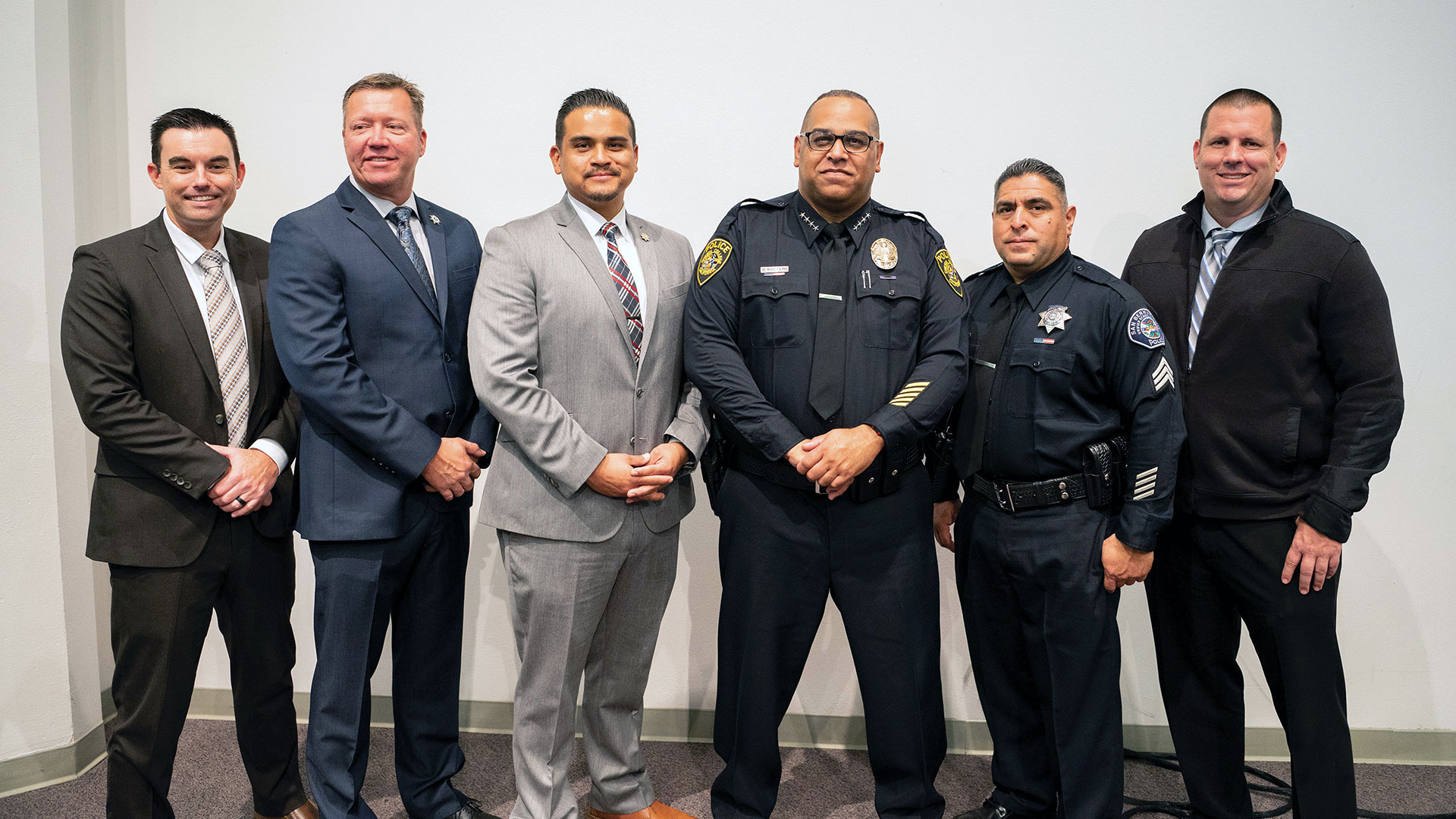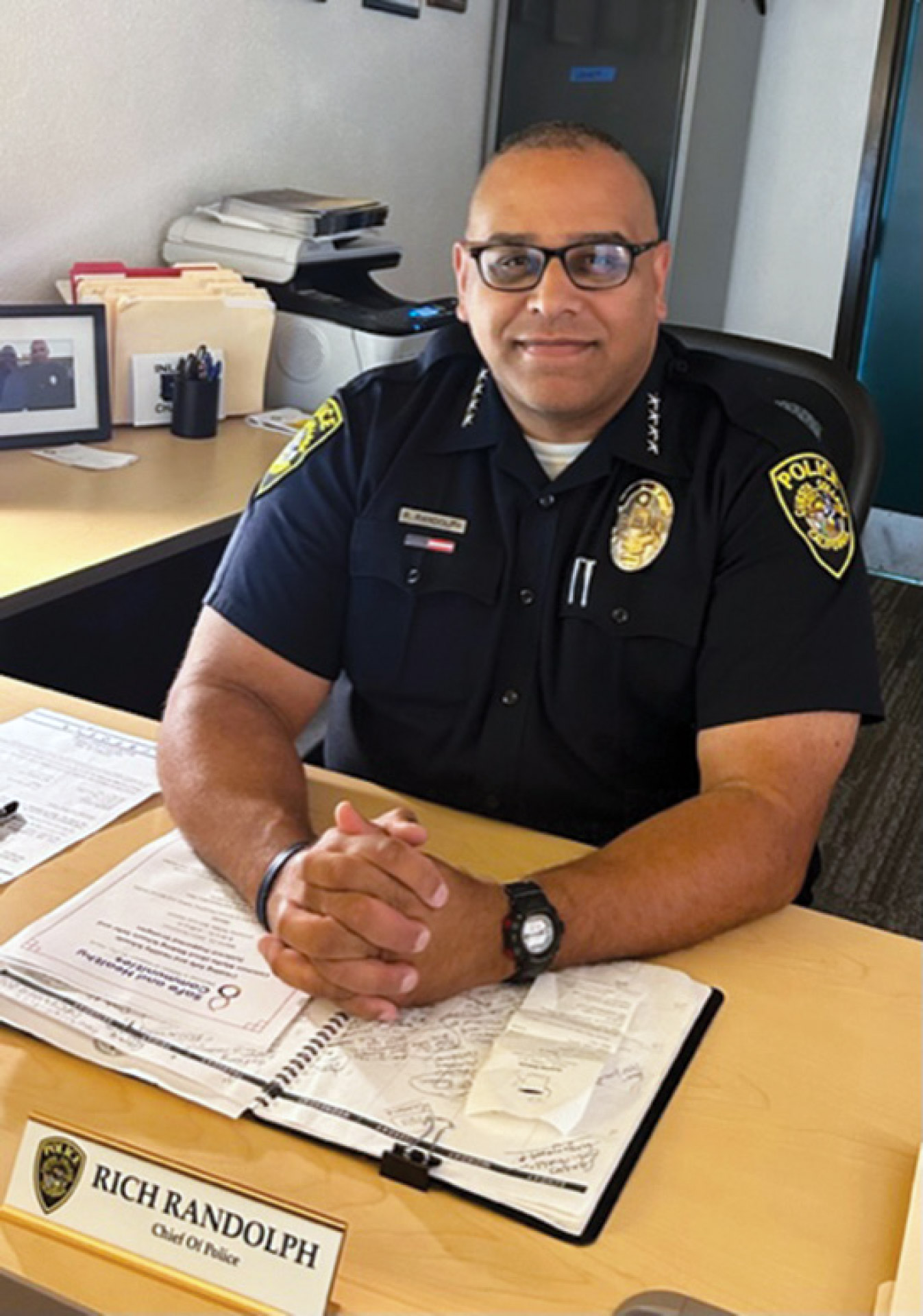
For years, Rich Randolph recalls telling his friends that he would someday be a police chief. He never lost sight of that goal throughout his career, always striving to become a better leader not only for his department, but for his local association and for PORAC. On December 9, after nearly three decades in the profession, Randolph fulfilled his longstanding dream when he was sworn in as Cuesta College’s police chief.
Randolph applied for the chief position in San Luis Obispo County around June last year while serving as a corporal and school resource officer with the Colton Police Department, where he had been for over 15 years. He went through vigorous screening processes and several interview panels, meeting with “various people with backgrounds related to the school, employees, other law enforcement agencies. It was probably one of the most challenging processes I have ever undergone,” he shares.
But his background as the Colton P.D.’s community liaison officer for the local school district and as an SRO gave him invaluable experience vital to the role. As an SRO, he had handled his fair share of critical incidents, dialoged with multiple city and state agencies for resources, and much more. “I always wanted to be a police chief of an agency that was progressing so I can help mentor troops, have lasting impacts and be a trendsetter for a campus police department, since school policing is so critical in our country today,” he says.

In addition, Randolph’s past experiences as president of the Colton Police Officers Association and president and director for PORAC’s Inland Chapter equipped him with the leadership skills needed as chief. “My entire career, even as a union leader, was built on collaborations, networking and bringing forth projects that unite entities or organizations. It’s tasks like those that have helped me move Colton POA forward and make the Inland Chapter so strong,” he explains, adding that his “involvement in PORAC helped me to learn how to work with bad leadership and good leadership. Those are lessons I have been and will be applying in my career.”
After he was selected to become chief, Randolph immediately got to work. He performed a full assessment of the department, conducted a budget review and took inventory of the organization, weapon systems and audit of evidence, making sure they were in POST and DOJ compliance. “On day one I met with every employee and asked what they wanted from their chief and how I could help them professionally,” he says. “My mentors told me to listen and learn, and that’s what I did.”
Randolph’s responsibilities revolve around ensuring the department’s systems operate efficiently; budgeting and financial planning; building and developing relationships on the campus and throughout the county; and starting a department calendar for training, campus safety training and community and campus projects.
“My goals are simple: build on and expand one of the best college police departments in the state that can serve as a role model for others, and learn how to be a good leader by listening and watching others,” he says. He plans on meeting with the college’s department chairs, student clubs and agency departments to assure them of his availability and the resources his agency provides, as well as building on school-based community programs that positively impact the campus, students and staff. “All law enforcement and support agencies have been more than accommodating and welcoming,” he says. “In my first management staff meeting on campus, every director came to shake my hand and welcome me.”
While he’s off to a positive start, Randolph admits that the transition from Colton P.D. to Cuesta College was not without difficulties, noting that his move and relocation were challenging and that he faced many personal and professional obstacles during the process. “But with guidance and support from my previous administration and my troops back home, basically the Inland Empire rallied for me to move forward,” he says. Randolph adds that although his role in PORAC has changed (he will remain on the State of California Racial and Identity Profiling Advisory Board and as co-chair of COPOR), he will still lean on and be available to fellow members for mentoring and support.
To PORAC members who endeavor to serve in an executive law enforcement leadership position in the future, Randolph shares advice from his mentors that he has followed throughout his career: “Be humble, be respectful and do a lot of listening. Don’t forget where you came from.”
